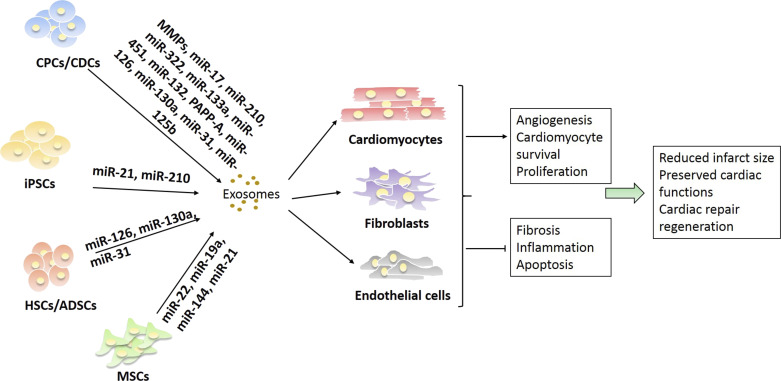Figure 7.
Stem cell-derived exosomes hold potential cell-free therapies for myocardial infarction by enhancing angiogenesis, cardiomyocyte survival and proliferation, and repressing fibrosis, inflammatory responses, and apoptosis. Mesenchymal stem cells (MSCs), cardiac progenitor cells (CPCs), cardiosphere-derived cells (CDCs), induced pluripotent stem cells (iPSCs), hematopoietic stem cells (HSCs), and adipocyte-derived stem cells (ADSCs) release exosomes containing various bioactive molecules, including miRNA, which can act upon cells of the cardiovascular system including cardiomyocytes, fibroblasts, and endothelial cells. In turn, they can inhibit or promote key processes involved in cardiovascular disease to change the disease outcome.

